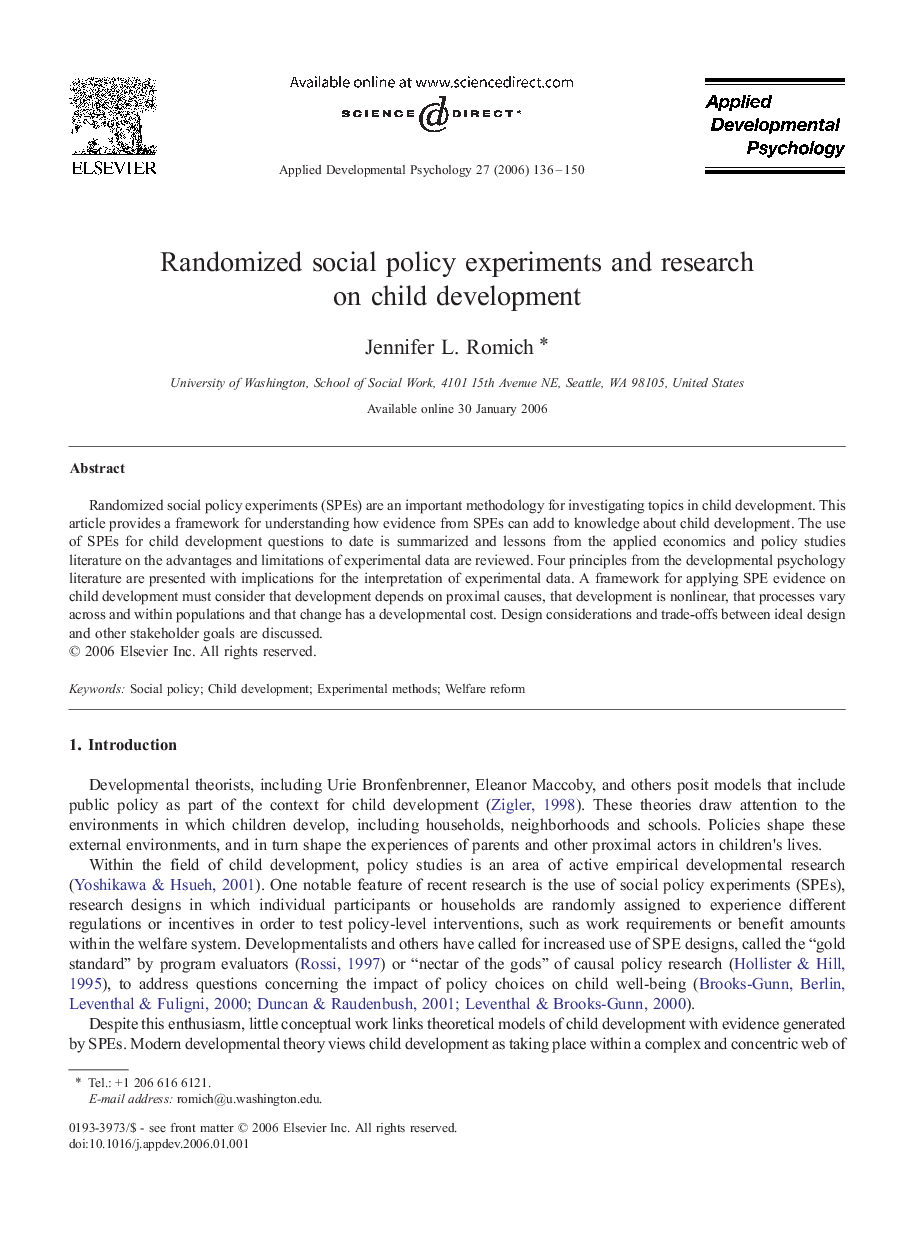| Article ID | Journal | Published Year | Pages | File Type |
|---|---|---|---|---|
| 360122 | Journal of Applied Developmental Psychology | 2006 | 15 Pages |
Randomized social policy experiments (SPEs) are an important methodology for investigating topics in child development. This article provides a framework for understanding how evidence from SPEs can add to knowledge about child development. The use of SPEs for child development questions to date is summarized and lessons from the applied economics and policy studies literature on the advantages and limitations of experimental data are reviewed. Four principles from the developmental psychology literature are presented with implications for the interpretation of experimental data. A framework for applying SPE evidence on child development must consider that development depends on proximal causes, that development is nonlinear, that processes vary across and within populations and that change has a developmental cost. Design considerations and trade-offs between ideal design and other stakeholder goals are discussed.
